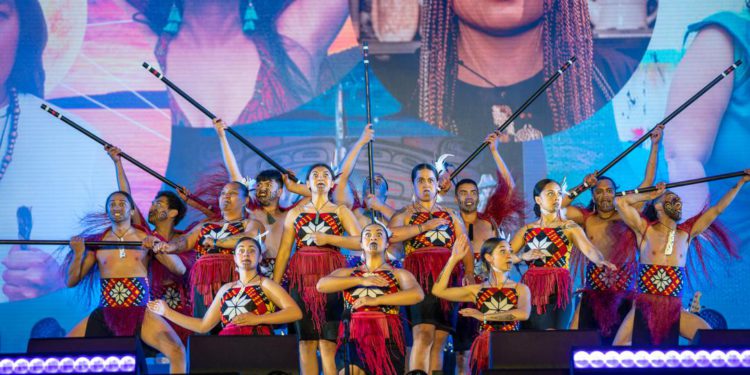DUBAI, 21 November 2021 – By accepting people from all countries and religions, the UAE has prospered over the past 50 years, experts concluded as Expo 2020 Dubai’s Tolerance and Inclusivity Week drew to a close on Saturday, ahead of the nation’s Golden Jubilee celebrations.
A panel discussion, ‘Openness and the Path to Prosperity’, part of the Cultures in Conversation series, underlined how good relations and acceptance between all sectors of humanity are vital for success and can address many of the current global challenges.
It was noted that these same values have helped to define the UAE over the last five decades. Tolerance has been deeply rooted in the fabric of the culture, heritage and traditions since its founding in 1971, with more than 200 nationalities currently living and working in the country.
During the week, several global initiatives were launched by His Excellency Sheikh Nahayan bin Mubarak Al Nahayan, UAE Minister of Tolerance and Coexistence and Commissioner General of Expo 2020 Dubai.
In a speech at the Italy Pavilion, HE Sheikh Nahayan announced the Global Tolerance Alliance – a unified pledge to peaceful coexistence and tolerance among different nations and cultures. This was followed by the official opening of the Joint World Summit of Religions, aimed at promoting dialogue between different religious backgrounds.
HE Sheikh Nahayan also revealed details of the Global Youth Forum, with its slogan ‘From Youth to Thinking about the Future’, organised by the Ministry of Tolerance and Coexistence in conjunction with the Federal Youth Authority, to highlight the importance of nurturing the younger generation’s creativity, as well as announcing the start of the ‘Women’s Role in Enhancing Values of Coexistence Globally’ conference.Speaking at the ‘Openness and the Path to Prosperity’ event, His Excellency Dr Zaki Anwar Nusseibeh, Cultural Adviser to the President of the UAE and Chancellor of UAE University, said: “[We have] retained our own heritage, our own national identity, our own tradition; and this is, again, the secret, I believe key to what is happening in the UAE, to be able to have above 200 nationalities living together in harmony, opening up to world cultures, but at the
same time… as we see in this [UAE] pavilion, to see how tradition and heritage remain a central part of our multi-culturalism.”
HE Dr Zaki Anwar Nusseibeh then gave examples of the UAE’s success – incredible achievements made possible in just 50 years by a nation that is welcoming, tolerant and accepting of others: “[We are] exploring space, sending a probe to Mars and to Venus. This is an amazing jump. I see a stretch ahead of us, 50 years and… the young generation of Emiratis today at our universities, [they are] young bright students.”
It was a fitting end to a week-long schedule of conferences, discussions and entertainment, welcoming speakers and performers from a diverse range of backgrounds, cultures, nationalities and religions. Tolerance and Inclusivity Week, built around International Tolerance Day on 16 November, also outlined the challenges still faced by women, children, migrants and people of determination in terms of feeling accepted, and showed the potential of a more tolerant society.
Another highlight was the three-day ‘Te Aratini, Festival of Indigenous and Tribal Ideas’, led by the National Iwi Chairs Forum, a coalition of independent Iwi (Tribal) Chairs, and coordinated by Māori leaders in partnership with the Aotearoa New Zealand government, as the first indigenous festival in World Expo history. Countries participating in the festival include hosts Aotearoa New Zealand, as well as the UAE, Australia, Canada, USA, Malaysia, Paraguay and Panama, with indigenous performers from nation each taking part.









